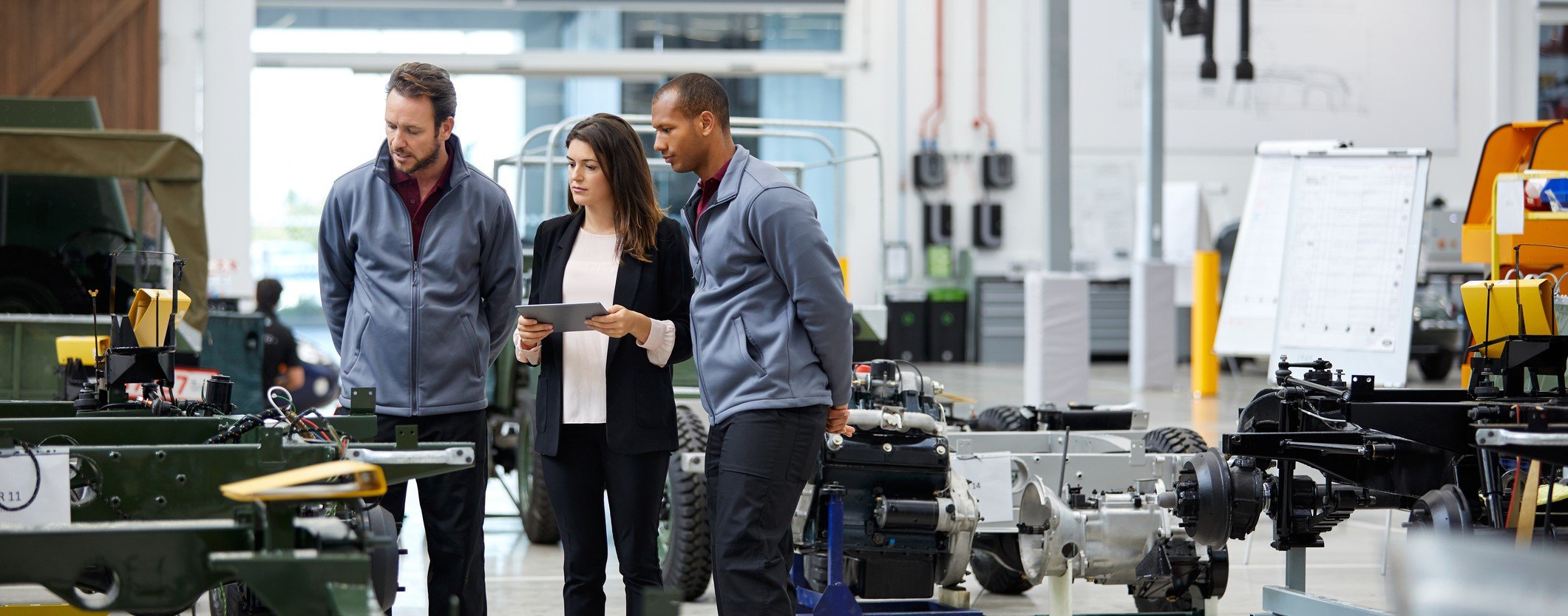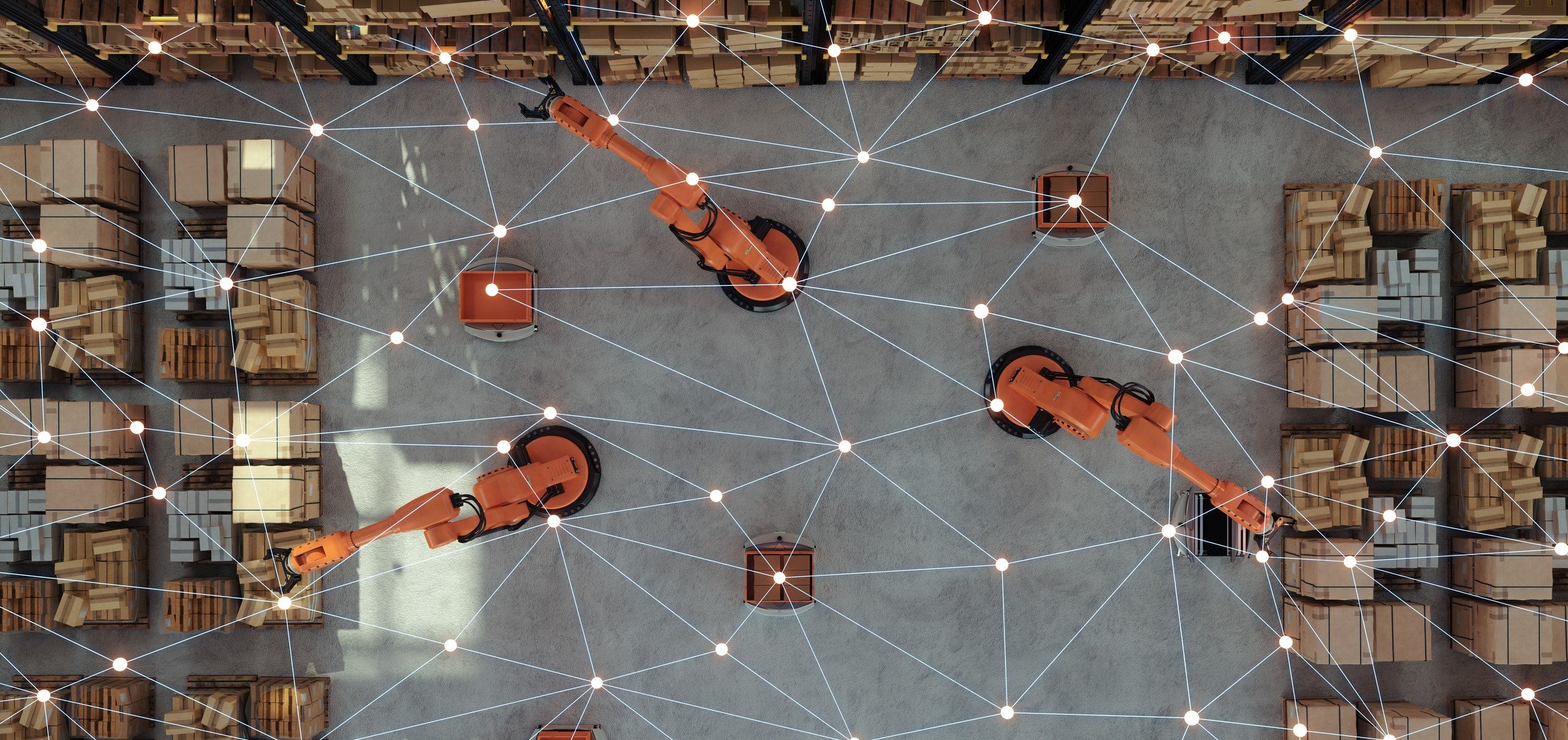
The automotive industry is undergoing rapid transformation, driven by changing customer expectations, technological advancements, and a heightened focus on operational efficiency. At the heart of these shifts is the deskless workforce—comprising service technicians, showroom managers, sales teams, and other essential roles. 70% of North American workers lack a fixed workstation, losing as much as 32 days annually switching between disconnected enterprise applications. In an industry reliant on precision and speed, this productivity loss is substantial.
To help leaders tackle these challenges, Point B hosted the webinar Breaking Silos: Deskless Worker Solutions for Automotive Operations. The discussion highlighted how technology tailored to support and engage deskless workers can drive collaboration, boost productivity, and elevate the customer experience. We’ve provided a recap below.
Why Deskless Solutions are Vital for Automotive Operations
Deskless workers are critical to the success of dealerships, service centers, and retail operations. However, many face inefficiencies stemming from outdated systems and fragmented tools. Imagine a service technician hindered by limited data leading to frustrated customers, or a sales team member lacking real-time coordination with the service team putting a sale at risk. Inefficient interactions like these can quickly accumulate, influencing customer satisfaction and brand loyalty.
Deskless worker solutions—like integrated mobile CRM systems and tools that support cross-functional collaboration—offer a comprehensive approach to overcome these challenges. By enabling faster access to information, real-time communication, and task management, these tools let workers focus on delivering value rather than wrestling with technology.
Key Takeaways
1. Accelerate Information Flow
Deskless worker solutions resolve pain points like siloed data and slow communication. Tools like mobile CRMs centralize critical information, enabling sales reps and service technicians to collaborate seamlessly.
For instance, real-time communication tools allow dealership managers to inform technicians of customer requests instantly, avoiding delays and enhancing service delivery.
2. Break Down Silos Across Functions
Fragmented operations often result in inconsistent customer experiences and missed opportunities. Point B’s framework integrates deskless tools with existing systems, enabling collaboration across finance, sales, and service functions.
For example, sales reps can track inventory availability and coordinate with service teams in real time, ensuring seamless operations and higher customer satisfaction.
3. Enhance the Lead-to-Customer Pipeline
Deskless technology drives more than operational improvements—it transforms financial outcomes. Through coordinated multitasking and role-sharing between departments, sales teams can convert more leads into sales. They’re empowered to cross-sell or upsell additional services with technician availability, real-time inventory, and supply insights.
By enabling efficient task delegation and service execution, tech-enhanced multitasking increases conversion rates and improves customer satisfaction.
4. Elevate the Customer Experience
Modern customers expect personalized, omnichannel experiences. Deskless technologies deliver quick response times, transparent updates, and consistent communication, fostering brand loyalty.
Consider a fleet of technicians who can access manuals, diagnostics, repair instructions, and service history all from the workshop floor. These capabilities enable a personalized experience that reduces service time, drives consistency, and boosts customer confidence in the quality of service.
5. Achieve Cost and Efficiency Gains
By reducing the time to complete manual tasks, advanced deskless tools significantly cut down administrative hours. A dealership with 60 employees could save $500,000 to $1 million annually by reallocating wasted time to higher-value activities.
From working with small dealerships to scaling across national automotive groups, we deliver tailored solutions to meet your specific operational needs.

Potential Use Cases for Deskless Worker Solutions:
Mobile Diagnostics and Repair
Instead of walking to and from the back office to retrieve or record data, service technicians can manage repair jobs in real time via mobile apps, reducing bottlenecks and delays.
Inventory Transparency for Sales Teams
Real-time inventory access enables better decision-making and enhances the showroom experience.
AI-Driven Support
Contextual recommendations help technicians follow outlined instructions, reducing errors and improving efficiency. For instance, a technician trying to replace a car’s air filter can simply ask the device to access step-by-step instructions.
By ensuring seamless access to tools, data, and communication channels, these technologies reimagine the day-to-day of deskless workers, providing them with the resources they need to succeed.
How to Get Started with Deskless Solutions
Integrating deskless solutions doesn’t require an overhaul of your existing systems. Point B specializes in flexible, API-driven integration that works with your enterprise applications.
With a 6–12 week timeline to prototype, your organization can quickly identify and address inefficiencies, improve communications, and start realizing cost savings. From working with small dealerships to scaling across national automotive groups, we deliver tailored solutions to meet your specific operational needs.
The future of automotive operations is deskless. By focusing on streamlined workflows, seamless collaboration, and real-time insights, your organization can unlock new levels of productivity and customer satisfaction.
To learn more about how Point B can help your team implement deskless worker solutions, contact us today to schedule a consultation.

RELATED INDUSTRIES
RELATED SOLUTIONS





